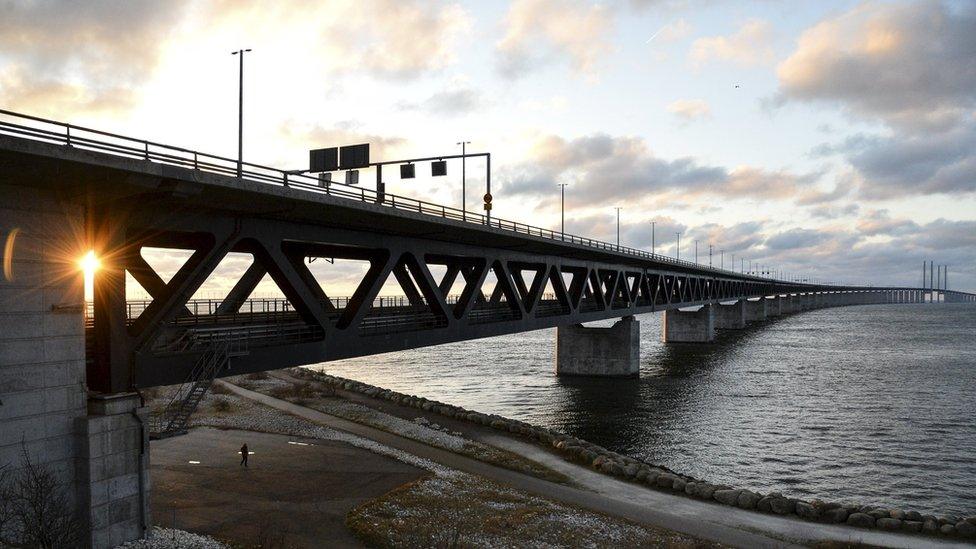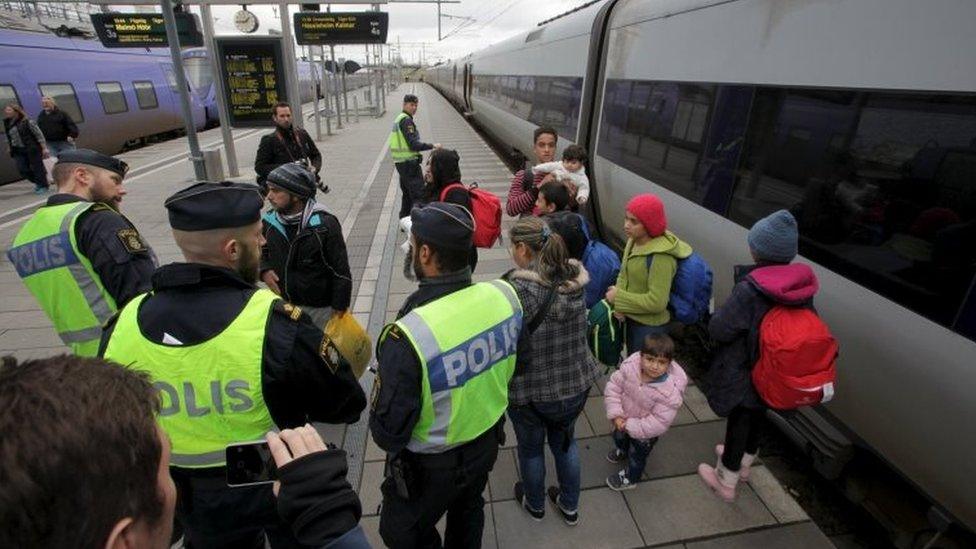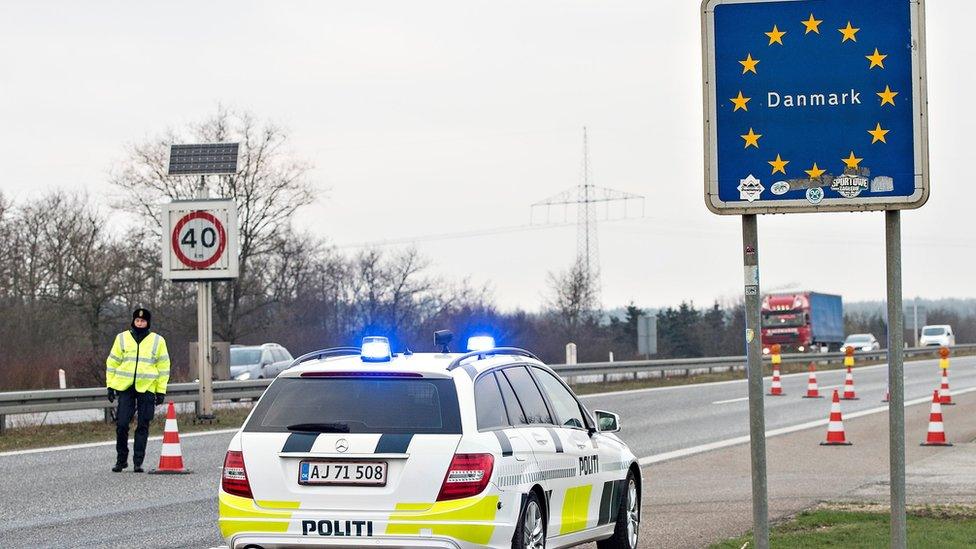Migrant crisis: Bridge over Europe's troubled waters
- Published

The Oresund Bridge was opened in 2000 and was hailed at the time as a symbol of European co-operation
Imagine a hair-raising car chase between the cops and some bad guys, the very best cinema can offer. Screeching down city boulevards and alleyways. Narrowly avoiding death and destruction. The baddies make a break for the border. It is fast and frantic, wild and exciting.
Until the cars come to a screeching anti-climactic standstill on a bridge heaving with traffic.
This could be the new reality in the edgy Scandinavian TV drama, The Bridge, whose fans now eagerly await series four.
It is a gritty police thriller centred around the Oresund Bridge that links the Danish capital Copenhagen and Sweden's third city, Malmo.
But on Monday Sweden imposed ID checks on those crossing from Denmark, especially on those coming by train bus, or ferry.
With 20,000 commuters using the bridge on a daily basis - mainly Swedes taking advantage of better-paid jobs on the "other side" - the fear is that more people will now use cars to cross instead, leading to huge traffic jams.
The Oresund Bridge was completed 15 years ago and has greatly increased the flow of trade and people between the two sides.
Sweden's The Local news site quotes the deputy CEO of southern Sweden's chamber of commerce as saying that the ID checks could do permanent damage to that.
"The commuting system is the blood system of a metropolitan economy," he said. "It will stop the blood flowing."
Bridges are ordinary, everyday structures but they are, of course, also laden with symbolism and are firm favourites amongst writers, composers, painters and filmmakers: Simon and Garfunkel's Bridge over Troubled Waters springs to mind, as does the recent Cold War Hollywood extravaganza Bridge of Spies and the somewhat older Wordsworth poem Composed upon Westminster Bridge.

Sweden first brought in temporary border checks in November 2015
The Oresund Bridge is Europe's longest road and rail link. As such it has been touted as a poster boy of EU unity and of passport-free travel through peaceful post-war Europe (amongst the member countries of the borderless Schengen agreement).
No longer.
Instead of integration, Sweden's former Prime Minister Carl Bildt has remarked that "desperation" has become policy.
Why does he say that?
Well, Sweden says it has imposed the controls to limit illegal immigration.
This in the country famed for a generous approach to humanitarian migration. And where, back in 2013, long before Angela Merkel uttered similar words, the government said its doors were open to all Syrians fleeing their country's civil war.
But the government has had to re-consider the offer.
Public services have become compromised after Sweden received more migrants (refugees and others) per capita than any other European country in 2015.
And perhaps another reason for "desperate" measures: the governing Social Democrat party has been repeatedly thrashed in opinion polls by the proudly anti-immigration Sweden Democrat Party.
But even before the ID checks were introduced on Monday, asylum seeker arrivals to Sweden had already dropped by a third after the country considerably tightened migration criteria back in November.
Arguably then, the intention behind today's measure was as much Swedish crowd-pleaser as migrant deterrent.

Denmark has reinstituted its own border controls with Germany in reaction to the Swedish move
The Oresund Bridge remains a poster boy for Europe, a sign of the times - of disunity and the return of national border controls.
Denmark reacted to the Swedish move today by imposing controls on its border with Germany. Again, migrant-related but almost inevitably also politically motivated.
Germany then reacted by declaring that Schengen could well be doomed.
The year 2015 was the year Europe felt "swamped" by refugees and other migrants. It was the year border-controls were re-imposed - officially only temporarily - across Europe.
A year that anti-immigration parties saw predictable gains in public opinion polls but where - perhaps more unexpectedly - traditional centre-left parties in and outside government (in France, Sweden and the UK) began to adopt rhetoric and immigration policies normally associated with parties further to the right.
A number of Europe's conservative parties have also sounded increasingly anti-immigrant in tone - in Norway, Denmark, Hungary and Poland for example.
German Chancellor Angela Merkel, too, has been forced by allies, political opponents and public opinion to step back from her earlier welcoming stance.
Now, in January, the days are getting longer again.
Spring, and with it the potential for more refugees and other migrants making the journey across the Mediterranean en masse in search of a better life, is close at hand.
Will Europe deal better with this complex crisis this year than last?
Might a European solution be found to a common crisis?
Can Europe's countries bridge their differences to finally act effectively?